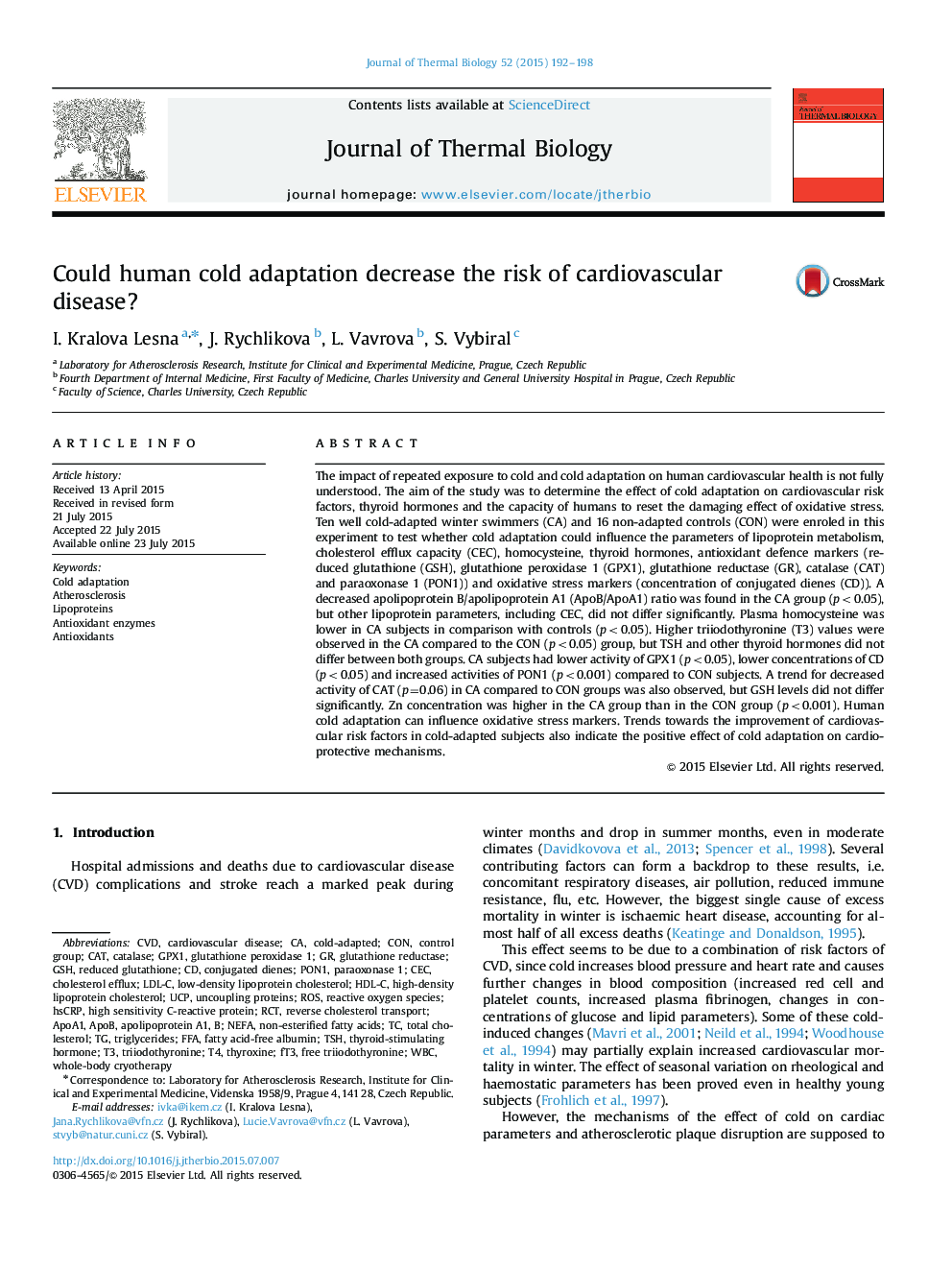| کد مقاله | کد نشریه | سال انتشار | مقاله انگلیسی | نسخه تمام متن |
|---|---|---|---|---|
| 2842837 | 1571094 | 2015 | 7 صفحه PDF | دانلود رایگان |
• Repeated exposure to cold can influence the antioxidant system in humans.
• Cold adaptation is connected with a favourable switch of lipoprotein markers.
• We assume that cold adaptation may lead to a decreased risk of cardiovascular disease.
The impact of repeated exposure to cold and cold adaptation on human cardiovascular health is not fully understood. The aim of the study was to determine the effect of cold adaptation on cardiovascular risk factors, thyroid hormones and the capacity of humans to reset the damaging effect of oxidative stress. Ten well cold-adapted winter swimmers (CA) and 16 non-adapted controls (CON) were enroled in this experiment to test whether cold adaptation could influence the parameters of lipoprotein metabolism, cholesterol efflux capacity (CEC), homocysteine, thyroid hormones, antioxidant defence markers (reduced glutathione (GSH), glutathione peroxidase 1 (GPX1), glutathione reductase (GR), catalase (CAT) and paraoxonase 1 (PON1)) and oxidative stress markers (concentration of conjugated dienes (CD)). A decreased apolipoprotein B/apolipoprotein A1 (ApoB/ApoA1) ratio was found in the CA group (p<0.05), but other lipoprotein parameters, including CEC, did not differ significantly. Plasma homocysteine was lower in CA subjects in comparison with controls (p<0.05). Higher triiodothyronine (T3) values were observed in the CA compared to the CON (p<0.05) group, but TSH and other thyroid hormones did not differ between both groups. CA subjects had lower activity of GPX1 (p<0.05), lower concentrations of CD (p<0.05) and increased activities of PON1 (p<0.001) compared to CON subjects. A trend for decreased activity of CAT (p=0.06) in CA compared to CON groups was also observed, but GSH levels did not differ significantly. Zn concentration was higher in the CA group than in the CON group (p<0.001). Human cold adaptation can influence oxidative stress markers. Trends towards the improvement of cardiovascular risk factors in cold-adapted subjects also indicate the positive effect of cold adaptation on cardio-protective mechanisms.
Journal: Journal of Thermal Biology - Volume 52, August 2015, Pages 192–198
